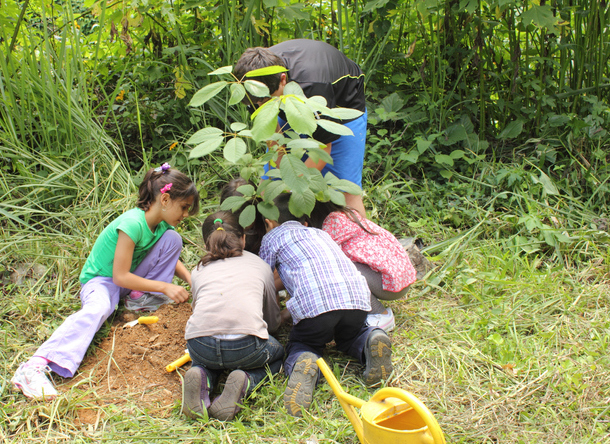In April 2018, the Venezuelan human rights NGO Provea participated in the VII Summit of the Americas in Lima, Peru, with a different strategy: not as a focal point of its heated debates but from its periphery, through a series of cultural activities.
Peru is the second largest recipient of forced migration from Venezuela. Therefore, the promotion of Venezuelan culture was intended to raise awareness among Peruvians about the causes of the exodus. Of the different events—which included the screening of the film El Amparo; Leeme, the festival of fanzines and alternative publications; and the distribution of the publication Comics for Democracy—the greatest impact was made by the free distribution of the CD Rock against the Dictatorship.
This compilation, which included protest songs by sixteen Venezuelan bands, was covered by all of the international press agencies, both at the event and in different Peruvian media. The fact that it was young artists who spoke about repression and poverty in Venezuela and not traditional politicians generated interest and ratified the need to promote new narratives about the crisis in the Caribbean country.
After twenty-four years of conflict in Venezuela and following the failure of the 2017 protests, which attempted to promote a transition to democracy, the country's political and social organizations are at a crossroads: What new path should be followed to generate a change in the living conditions of Venezuelan people?
The economic, social, and political context of the country has been changing: the economic crisis, which in 2022 registered an inflation rate of more than 300% with a monthly minimum income equivalent to $7, added to the devaluation of the local currency and the import of 75% of the food consumed, has forced the authorities to dollarize the economy by de facto means. Access to international currency has slowed down the crisis, during which the gross domestic product was negative for seven consecutive years, forcing more than seven million Venezuelans to emigrate.
Taking advantage of the geopolitical consequences of the Russian invasion of Ukraine, Nicolás Maduro is normalizing international relations after more than fifty countries disowned him as Venezuela’s president following the electoral fraud of May 2018. In addition, the new progressive wave that the region is experiencing, with leftist governments in Colombia, Brazil, Chile, Argentina, and Mexico, has allowed him the possibility of establishing cooperation alliances and sounding boards for his policies based on soft power.
After three years of paralysis and demobilization due to the COVID-19 quarantine, the opposition is experiencing its worst moment of representation. The government has managed to weather the storm, so the possibility of Maduro remaining in power in the medium term, despite the majority opposition against him, appears at this time as the most likely scenario.
Venezuela's democratic political and social leadership needs to reflect on its strategies to confront authoritarianism, as well as its weaknesses and strengths, which will allow it to take on future challenges with a higher level of effectiveness. Provea is promoting this conversation within civil society. Recently, in the report “Florecer en el abismo: Response of Venezuelan human rights organizations and activists to the erosion of democratic institutions,” I discussed the following eight lessons learned.
First, one does not react to a narrative that has totalizing pretensions; one should confront it with an alternative narrative. Reacting to the terms, codes, and language of authoritarians reinforces the sentiments to which they appeal in their different audiences.
Second, work that is articulated and networked is very important. In order to stay in power, authoritarianism needs the maximum and permanent division of its opponents. In places where collaborative platforms and networks are weak or in the process of forming, a deliberate effort must be made to invigorate them. Reacting collectively will always be more effective than reacting individually.
Third, human rights principles are a compass for addressing conflicts. In polarized contexts, reflection and positioning on successive events must be done from human rights principles.
Fourth, democracy must be permanently defended. There is a tendency to believe that, since it has been the system of government under which some of us grew up, democracy will always “be there.” Populists of different stripes weaken democratic freedoms in various parts of the world. From the outset, the defense and deepening of democracy must be explicitly incorporated into the demands that look for it. The challenge is how to transform democracy into a living and influential concept in people’s daily lives.
Fifth, we must promote strategic thinking for decision-making. Anticipate scenarios according to the best available information, assign them probability of occurrence, and make decisions to favor those that are in our interest and undermine those that are more detrimental to democracy and human rights.
Sixth, our messages must be transformed. The discourse of human rights activists and defenders makes two mistakes. The first is to use technical and specialized language that only insiders understand. The second is to direct their communication efforts to those who are already convinced, not to people who have little or no sensitivity to the situation.
Seventh, catastrophism ends up blocking people. Using only an apocalyptic discourse, with the aim of generating alarm, does not always stimulate people to take action; on many occasions it ends up blocking them. We must balance fatalistic narratives with others that convey positive stories.
Eighth, international advocacy and denunciation must take place at different levels, not only in international protection organizations but also among journalists, academics, and social leaders in other countries.
“It is absurd to turn your eyes back to your days,” says Venezuelan writer Rafael Cadenas in the poem from which the title of this report is taken. However, Venezuelan society must look back in order to be able to project itself forward and not falter in its efforts to return to a democratic model of coexistence.

